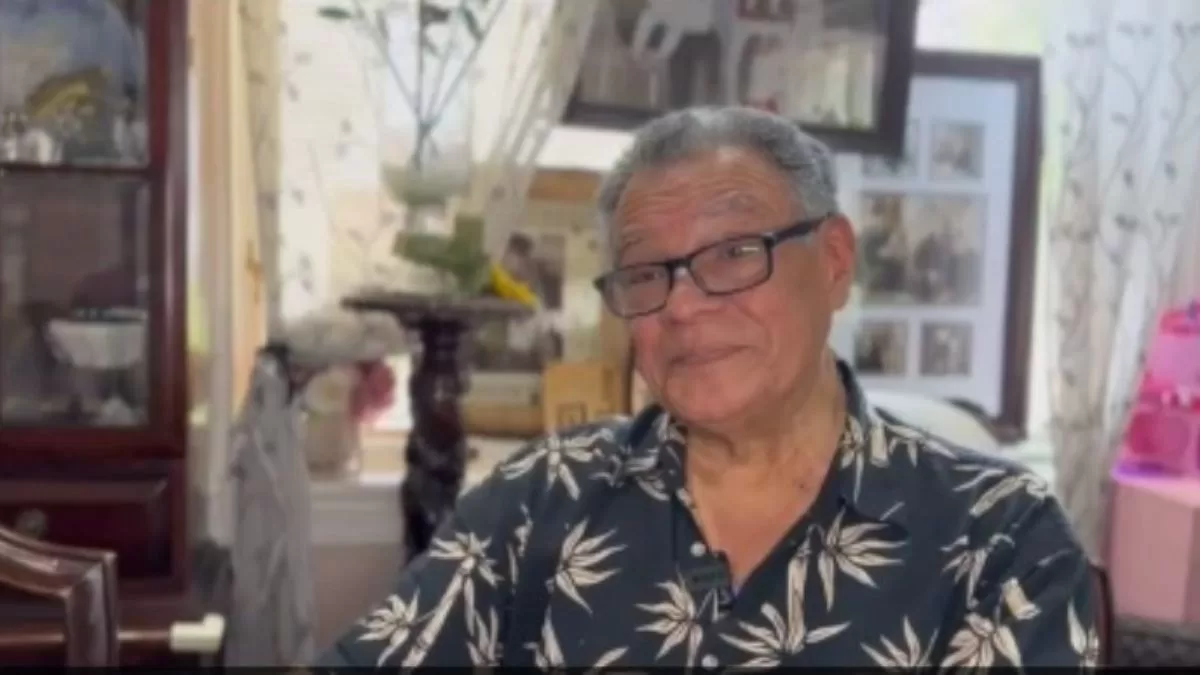A couple of gray hairs indicate that the years are passing, for many they are synonymous with wisdom, respect and admiration; for others, the perfect target for fraud.
This is the case of Angelo Alfaro, a Fairfax County resident whose home he has lived in for almost four decades, where he says many memories of him, his children, grandchildren and now his great-granddaughter rest. However, he is about to lose her to an alleged mortgage fraud.
According to Alfaro told Telemundo 44, it all started in November when he received a message from presumed agents of the PHH Mortgage company in which they offered to change the terms of his mortgage with a lower interest rate and monthly payments on the condition that his payments would make them through money order and not through the website.
Since that date he has paid, but the company never received the money. This led the house of her leading to foreclosure and was sold at auction.
“I couldn’t believe what I had found out because it was through a letter that they left me at the door (and they told me) that I had 13 days to vacate my house,” he said.
Alfaro argued that he never received notifications from the company warning that they were not receiving payments and that he finally found out when the house was for sale.
Telemundo 44 contacted PHH Mortgage and confirmed that both agents who contacted the victim do not work with the company and that he had been regularly notified of his mortgage status.
“With respect to Mr. Alfaro’s mortgage, we have thoroughly reviewed the matter and determined that PHH complied with all investor and regulatory requirements. In addition, after reviewing our records of correspondence, all appropriate notices and information regarding the Details and the status of Mr. Alfaro’s mortgage were regularly communicated to him,” reads part of the statement.
In this case, the Telemundo team identified elements that from the beginning could alert that it was a fraud: The email address through which the alleged agents were contacted was not from the company, many conversations took place informally by text message and the money order they were not sent to the mailing address of the company.
Alfaro still hopes that justice can help him recover ownership of the house where, for three decades, he still meets with his entire family to cook a Peruvian minuta soup and where today he begins to write his seventh book, this time about Fraud against the elderly.
UNDER THE SPOTLIGHT OF THE AUTHORITIES
FBI special agent Fernando Uribe warned that this year has represented an 84% increase in scams against the elderly through various modalities, which translates into more than $3 billion annually in losses.
“(Scammers) use every possible mechanism to reach older people, because they may be isolated or alone, physically limited, higher chance of not being a good witness, overly educated or trusting, and less likely to report or know how to do it,” he explained.
Agent Uribe assures that there are numerous types of financial scams such as mass emails and traditional calls, but there are other ways in which criminals try to make their victims fall.
“They include tech support fraud, trust fraud such as social media romance scams, mail and telemarketing scams, lottery and sweepstakes scams, impersonating government agents, and real estate fraud because seniors are prone. to be owners or to be financially stable”, he listed.
Uribe also offered advice to avoid falling into these schemes:
- Remember that companies do not have lonely contacts
- Consider programs to block ads and viruses on the computer
- Resist the pressure to act immediately on a request, as scammers try to activate the fear factor to get money quickly
On this last point, the Postal Service inspector, Hunter Lentz, agreed.
“Nothing the scammers are sending you is urgent enough that you should step back a bit, talk it over with a friend or family member, and try to find out if it’s legit,” he stressed.
For his part, Officer Sergio Andrade of the Fairfax Police said that if a person receives a call from an individual saying that they work for any company, but you are not sure, it is best to hang up, search the internet for the number of that company on an official page and call back.
OTHER RECOMMENDATIONS
The Fairfax County Office of Consumer Affairs also offered other alternatives:
- Do not accept phone calls or text messages from unknown numbers
- Never send money to anyone who asks for it, gift cards or money order
- Consider using a credit card
- Do not share personal information over the phone
- Do your research before making a financial transaction or signing a contract
Visit this link to see how to report fraud if you live in the Washington DC area.





